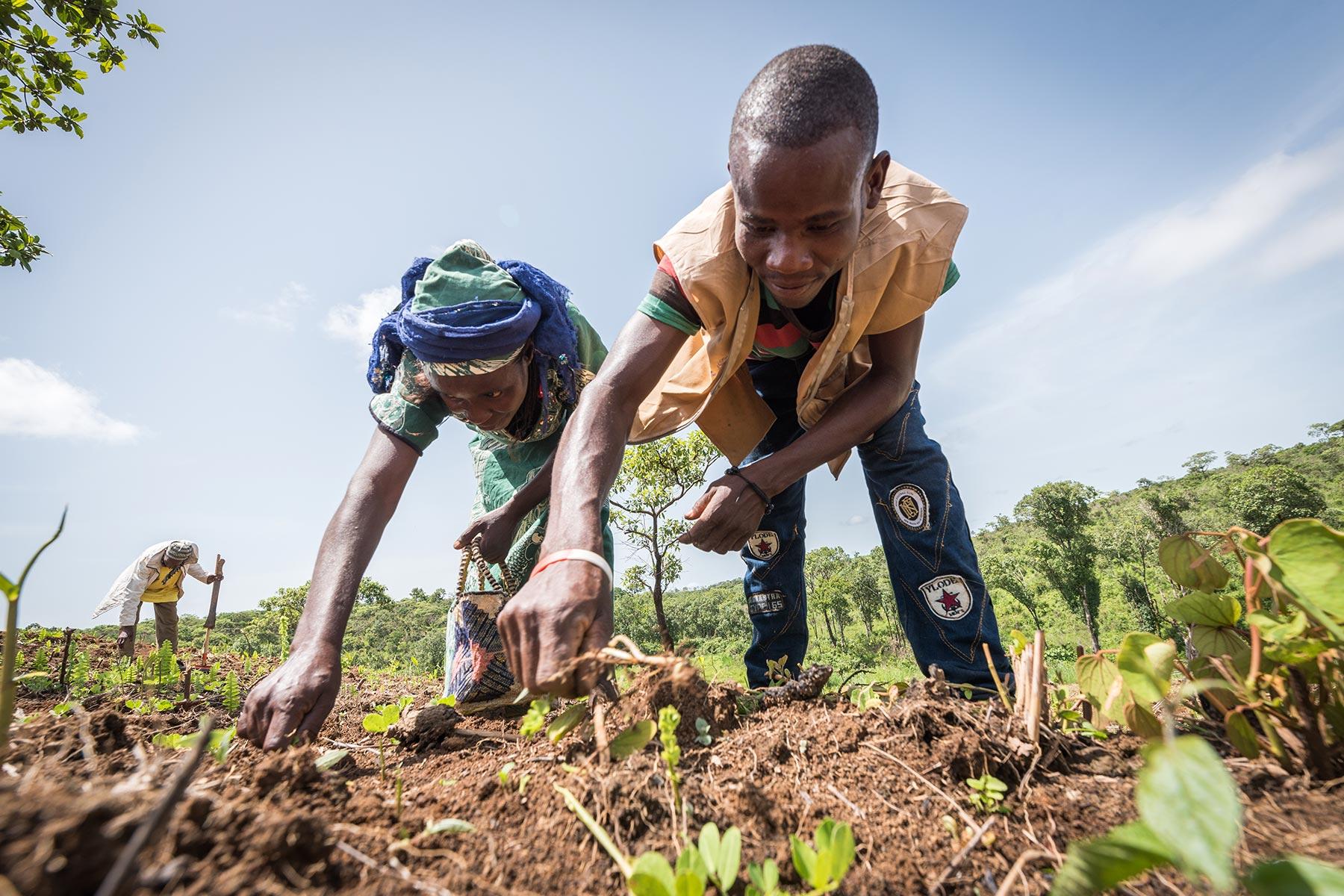LWF joins Climate and Environment Charter

At Ngam refugee camp, Cameroon, the LWF trains people in modern farming techniques. By keeping a strict ratio of how many seeds to sow per hectare and planting Cassava and Groundnut together, they can increase harvests and retain soil fertility over a longer time. Photo: LWF/Albin Hillert
Call to COP26 decision-makers to step up climate and humanitarian efforts
(LWI) – The Lutheran World Federation (LWF) recently signed the Climate and Environment Charter for Humanitarian Organizations. It brings together national and international NGOs and faith-based organizations, and UN agencies to jointly act to reduce the impacts of the climate and humanitarian crises by accelerating their own action and mobilizing others to do the same.
“This Charter provides a clear vision and principles to guide humanitarian action in the face of the climate and environment crises,” says Maria Immonen, LWF World Service Director. “These crises already affect people’s lives and livelihoods around the world. Their impact is growing all the time.”
“In our operations, we see these effects daily,” Immonen says. “People’s ability to feed themselves declines, their livelihoods cannot be sustained in many areas, and they struggle for access to resources such as water and land. Conflicts escalate, and displacement of people is increasingly linked to climate-induced problems.”
Standing together as local, national, and international humanitarian organizations, the signatories to the Charter commit to:
- Step up their response to growing humanitarian needs and help people adapt to the impacts of the climate and environmental crises
- Maximize the environmental sustainability of their work and rapidly reduce their greenhouse gas emissions
- Embrace the leadership of local actors and communities
- Increase their capacity to understand climate and environmental risks and develop evidence-based solutions
- Work collaboratively across the humanitarian sector and beyond to strengthen climate and environmental action
- Use their influence to mobilize urgent and more ambitious climate action and environmental protection
- Develop targets and measure their progress as they implement their commitments
Those most affected by the consequences of the climate and humanitarian crises are the poorest and most marginalized communities, whose capacity to adapt is already strained, owing to armed conflict, displacement, weak governance, unplanned urbanization, or poverty. Moreover, structural inequities and people’s individual characteristics, such as age, gender, disability, or livelihood, exacerbate these situations.
Signatories’ statement before COP26
In a statement issued on 20 October, the signatories to the Climate and Environment Charter for Humanitarian Organizations “urge negotiators to bear in mind the humanitarian consequences of their decisions.”
Signatories to the statement make it clear that “today’s climate and environmental crises threaten the survival of humanity. All dimensions of our lives are affected, from our physical and mental health to our food, water, and economic security.”
The UN Intergovernmental Panel on Climate Change (IPCC) most recent report points out that climate-related disasters have nearly doubled in the past 20 years. Weather-related hazards are now the number one driver of internal displacement, affecting most notably the poorest and most marginalized people.
The signatories point out that “the climate crisis adds an additional layer of stress to humanitarian organizations that are already stretched thinner than ever before. Urgent and ambitious action is needed to cut greenhouse gas emissions and adapt to rising risks so that we can avert the most disastrous consequences on people and the environment. Without ambitious climate action, humanitarian organizations will struggle to respond to increasing needs.”
Spelling out their own commitments to tackle the climate and humanitarian crises, the statement’s signatories appeal to COP26 decision-makers: “We know that radical transformation is needed. We are determined to act, urgently and intentionally, and we call on everyone, across the humanitarian sector and beyond, to do the same.”
By LWF/A. Weyermüller





